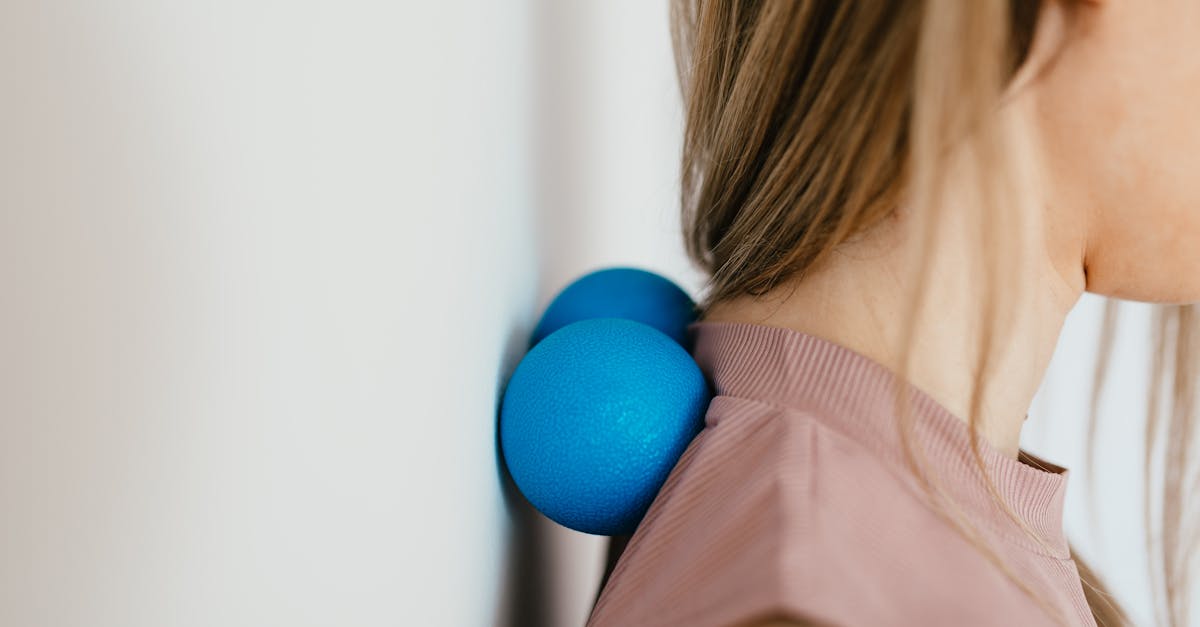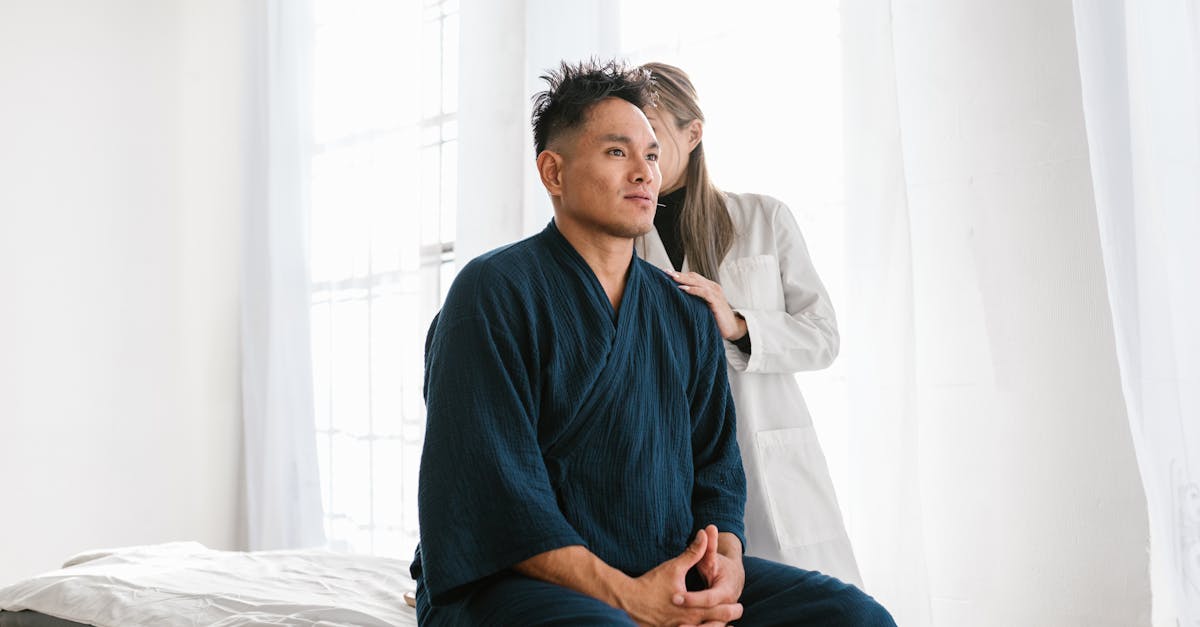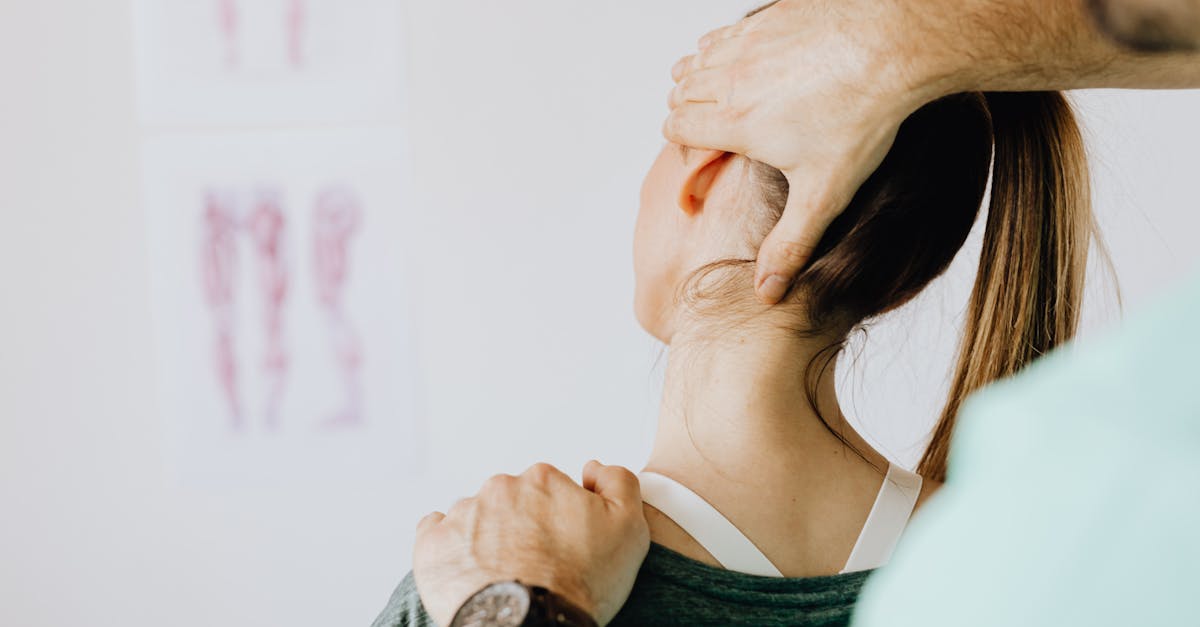|
In Short Waking up with neck pain refers to the discomfort many experience upon rising, often due to poor sleep posture and inadequate pillows. Identifying the causes of this issue can lead to effective strategies for relief and prevention, enhancing overall quality of life. By implementing practical steps, such as adjusting sleeping positions and utilizing ergonomic pillows, individuals can enjoy increased comfort and mobility while reducing muscle strain. Ultimately, understanding and addressing neck pain can significantly promote better sleep health and daily well-being. |
Waking up with neck pain is a prevalent concern that can hinder daily activities and overall well-being. This discomfort often stems from poor sleep posture or inadequate pillow support, which may lead to muscle strain and stiffness. Conditions like osteoarthritis or previous injuries can further exacerbate the issue. Implementing strategies such as gentle stretching, adjusting sleeping positions, and using ergonomic pillows can significantly alleviate pain and improve movement. By understanding the underlying causes and applying targeted solutions, individuals can enhance their quality of life.

Discover Pulse Align: Your Path to Natural Balance and Well-Being
Pulse Align is an innovative approach that promotes the body’s natural ability to return to optimal function through gentle, imperceptible stimulation. This method helps restore balance and posture, potentially leading to a notable reduction in muscle and joint tension. Our aim is to create a nurturing environment where clients can explore their wellness journey, focusing on improved well-being for the entire family, including children and pregnant women.
Supporting Your Body’s Natural Recalibration
At Pulse Align, we emphasize the importance of your body’s innate capability to recalibrate itself. This method encourages muscle tone symmetry and improved posture, cultivating a sense of comfort and a feeling of well-being. Instead of focusing on discomfort or conditions, our approach fosters an environment for your body to thrive naturally, with many clients experiencing a positive shift in their overall balance and harmony.
A Personalized Wellness Experience
Our personalized approach is at the heart of what we do. Clients often share how they have noticed significant improvements in tension and overall wellness through our supportive services. Testimonials echo the transformative experiences of individuals reclaiming their sense of ease and freedom of movement. At Pulse Align, we are committed to guiding clients as they explore how our unique method contributes to their journey toward enhanced well-being.
Visit Us and Reclaim Your Wellness Journey
We invite you to discover more about our services by visiting the Pulse Align website, where you can find nearby locations, including La Prairie, Mont-Royal, and Terrebonne. Book a consultation today and embark on your path to renewed vitality. Remember, Pulse Align complements your existing healthcare services and encourages collaboration with your healthcare team for any specific needs.
Medical Disclaimer
The services offered by Pulse Align are designed to complement, not replace, any medical care. Clients are encouraged to work alongside their healthcare team for any wellness concerns they may have. Any reported changes in well-being are attributed to the body’s innate ability to restore balance, rather than direct interventions from Pulse Align.
- Causes:
- Poor sleep posture
- High or stiff pillows
- Previous injuries
- Conditions like osteoarthritis
- Muscle strain from awkward positions
- Solutions:
- Use ergonomic pillows
- Incorporate gentle stretches
- Apply warm compresses
- Adjust sleeping positions
- Consult a healthcare professional if pain persists

Waking up with neck pain is a common experience that disrupts daily activities and affects overall well-being. The root causes of this discomfort often stem from poor sleep posture, inadequate pillow support, or underlying medical conditions. However, understanding these causes and implementing practical solutions can lead to significant relief and enhance the quality of life. This article explores the associated factors of neck pain upon waking and offers effective strategies to help alleviate and prevent discomfort.
Identifying Causes of Neck Pain
Poor Sleep Posture
One of the primary reasons for experiencing neck pain in the morning is poor sleep posture. When individuals sleep with their necks flexed for extended periods, it can create undue strain on the muscles and ligaments. Sleeping on the stomach tends to exacerbate this issue, as it forces the neck into an awkward position. Opting for sleep positions that support proper alignment, such as sleeping on the back or side, can significantly reduce the likelihood of waking up with stiffness and discomfort.
Improper Pillow Support
The type of pillow used can greatly influence neck health. Pillows that are either too high or too stiff can lead to improper alignment of the head and neck during sleep. Conversely, pillows that are too flat may not provide adequate support, causing the neck to bend unnaturally. It’s essential to choose a pillow that maintains the spine’s natural curvature and supports a comfortable angle for the neck. Consider experimenting with ergonomic or memory foam pillows, which can adapt to individual sleep positions and provide better support.
Underlying Medical Conditions
Individuals with pre-existing medical conditions, such as osteoarthritis or previous injuries—like whiplash—may find themselves susceptible to neck pain upon waking. Degenerative changes in the cervical spine can contribute to morning discomfort. If neck pain persists despite making adjustments to sleep habits and posture, seeking a professional evaluation may be necessary to identify any underlying health issues that require addressing.
Effective Solutions for Neck Pain Relief
Improve Sleep Environment
Creating a conducive sleep environment can significantly aid in preventing neck pain. Ensure that the mattress is neither too soft nor too firm, allowing for proper support. Additionally, maintaining a comfortable room temperature, minimizing noise disturbances, and ensuring adequate darkness can promote restorative sleep, ultimately impacting neck health positively.
Incorporate Gentle Stretches and Exercises
Engaging in gentle stretching and neck strengthening exercises can be essential in alleviating tension and promoting flexibility. Incorporate simple stretches before bedtime or as part of a morning routine to encourage circulation and reduce stiffness. Additionally, targeted neck exercises can enhance muscle strength and support, further preventing future discomfort.
Consult a Healthcare Professional
If pain persists, individuals should not hesitate to consult a healthcare professional. Gaining insight from physicians, chiropractors, or physical therapists can provide tailored strategies for managing neck pain, including rehabilitation programs that specifically address muscular imbalances and chronic discomfort. A comprehensive approach ensures individuals can effectively deal with their symptoms and regain comfort in their daily lives.
Implementing these insights allows individuals to take control of their neck health, mitigating morning discomfort while fostering a holistic approach to well-being. Embracing the principles of Pulse Align can help individuals promote neuromuscular health and symmetry, allowing for better overall alignment and comfort. This multifaceted strategy emphasizes adopting better sleeping habits, maintaining proper posture during daily activities, and integrating regular physical activity and relaxation techniques into one’s routine. By prioritizing these principles, individuals can reclaim joyful mornings free from the burdens of neck pain.
| Cause | Effective Solution |
|---|---|
| Poor sleep posture | Enhance alignment through proper pillow height that supports natural neck positioning. |
| High or stiff pillows | Select ergonomic pillows designed to maintain spinal curvature and reduce tension. |
| Previous injuries | Incorporate gentle stretches to nurture muscular flexibility and promote ease of movement. |
| Chronic conditions like osteoarthritis | Embrace holistic practices that encourage body balance and support natural recovery mechanisms. |
| Muscle strain from awkward positions | Engage in relaxation techniques, including deep breathing, to alleviate stress and tension. |
| Lack of proper sleep hygiene | Establish a calming bedtime routine to foster restful sleep, improving overall well-being. |
| Stress and tension | Utilize mindfulness and body awareness exercises to cultivate a balanced physical state. |
| Ineffective sleeping environment | Optimize sleeping surroundings to promote comfort and relaxation throughout the night. |
| Dehydration | Maintain hydration through increased water intake to support muscular health and fatigue reduction. |
| Vitamin deficiencies | Adopt a balanced diet rich in nutrients to encourage overall body resilience and well-being. |

Transformative Wellness Journeys: Clients’ Experiences with Pulse Align
In La Prairie, clients have shared their remarkable experiences with Pulse Align, emphasizing how our unique approach has significantly reduced their neck pain upon waking up. One client mentioned, “After just a few sessions, I felt a shift in how my body reacted to daily stresses. The gentle pulses assisted in recalibrating my posture naturally, allowing me to embrace my mornings once again.” This testimony highlights the effectiveness of our methods that harness the body’s innate ability to heal.
Residents of Mont-Royal have also expressed satisfaction with Pulse Align’s services. A long-time client stated, “I’ve battled morning stiffness for years. Through the targeted approach of Pulse Align, I’ve learned how to align my sleep posture and enhance my overall well-being. It feels liberating to wake up refreshed and free of discomfort.” Such insights reflect our commitment to supporting individual wellness journeys.
In Terrebonne, another client shared their positive transformation: “The holistic recovery I experienced at Pulse Align was truly unexpected. I approached my sessions with skepticism but quickly discovered the benefits of gentle movements that facilitated renewal. I now have increased mobility and comfort throughout the day.” This emphasizes the importance of empowering individuals to engage in their recovery process actively.
Clients situated in Sainte-Marie and Les Escoumins have found our services beneficial as well. One satisfied individual commented, “Working with the team at Pulse Align filled me with hope. Their approach not only targeted my neck pain, but I also gained tools to maintain balance in my daily routines.” This reinforces how our programs don’t just address symptoms but promote sustainable wellness.
The success of our clients in areas such as Châteauguay and Saint-Jérôme is a testament to the collective journey toward improved wellness. A client from Châteauguay remarked, “The support I received from the professionals at Pulse Align transformed my understanding of body alignment. I appreciate the holistic approach that respects my health journey.” These personal stories resonate with the underlying mission of Pulse Align—to work in harmony with healthcare teams and community members.
For individuals living in Chicoutimi, the feedback has been equally encouraging. A community member mentioned, “Pulse Align provided a sanctuary for my recovery. The warm, empathetic guidance from their intuitive care team ensured that I rediscovered my body’s potential. This has truly been a game-changer for my wellness.” These experiences illustrate the value of our services across different regions.
If you’re passionate about reclaiming your freedom of movement and improving your overall quality of life, explore how Pulse Align can facilitate your wellness journey. We invite you to visit Our Clinics to find nearby locations and book your consultation. Remember, Pulse Align is dedicated to empowering individuals alongside their healthcare teams, ensuring an integrative path to well-being for you and your loved ones.
Waking up with neck pain is a common plight that affects countless individuals, leading to discomfort and frustration as they start their day. The roots of this issue often stem from a myriad of factors, including poor sleep posture, inadequate support from pillows, and various underlying medical conditions. Understanding these causes is the first step toward discovering effective solutions for relief.
One crucial aspect that contributes to morning neck pain is sleep posture. When individuals sleep in positions that strain their necks—whether due to the height of their pillows or the angle at which they lie—they can experience significant stiffness and discomfort upon waking. Those who tend to sleep on their stomachs might be particularly susceptible, as this position often forces the neck into awkward angles, exacerbating muscle tension and pain.
Furthermore, the choice and quality of pillow play a critical role in neck health. A pillow that is either too high or too stiff can maintain the neck in an unnatural position, preventing it from resting comfortably during sleep. Conversely, pillows that are too flat may fail to provide adequate support, which can lead to strain on the cervical spine. Finding the right balance in pillow height and firmness is essential to maintaining proper neck alignment and preventing discomfort.
In addition to external factors, underlying medical conditions such as osteoarthritis or degenerative disc disease can substantially affect neck health. These conditions can lead to chronic pain and stiffness, significantly amplifying discomfort when combined with poor sleeping habits. Individuals with a history of neck injuries, such as whiplash, may find that their susceptibility to neck pain upon waking is heightened due to lingering effects from past trauma.
To address these issues, numerous strategies can be implemented. For instance, adopting a better sleep posture is paramount. Sleepers are encouraged to rest on their backs or sides while using pillows that support the natural curvature of the spine. This adjustment can alleviate undue pressure on the neck. Regularly switching sides while sleeping can also help distribute tension more evenly and reduce the risk of muscle tightness.
In tandem with sleep posture adjustments, incorporating gentle stretching into one’s routine can enhance neck health. Simple exercises that promote flexibility and relieve tension, such as neck rolls and side stretches, can be beneficial. These practices help maintain muscle health and improve overall mobility, which can, in turn, mitigate feelings of stiffness upon waking.
When home remedies and adjustments fail to yield significant relief, consulting with specialists such as Dr. Sylvain Desforges becomes increasingly important. Dr. Desforges, an expert in osteopathy, naturopathy, and manual medicine, is the founding president of the TAGMED clinics and is renowned for his innovative approaches to chronic pain management. His integration of advanced technologies, including spinal decompression, laser, and shockwave therapy, provides patients with evidence-based care designed to optimize health and well-being.
At TAGMED clinics located in regions such as Montréal, Terrebonne, and Mont-Royal, patients can access comprehensive assessments and personalized treatment plans tailored to their specific needs. Dr. Desforges’s mission centers around empowering individuals to regain control over their health, ultimately leading to improved quality of life.
With a solid understanding of the causes behind neck pain and the guidance of healthcare professionals, individuals suffering from neck discomfort upon waking can embark on a path toward recovery, enabling them to reclaim their mornings and engage fully with their daily routines.
Tagmed’s Neurovertebral Decompression Technology: A Promising Solution for Chronic Pain
Mechanism of Action
The neurovertebral decompression technology offered by TAGMED operates on the principle of applying controlled, progressive traction force to the spine. This method is designed to increase the space between the vertebrae, effectively reducing the pressure on intervertebral discs and nerve roots. By creating more room within the spinal column, this technique facilitates a significant improvement in fluid circulation in the targeted area. Such enhanced circulation is crucial for diminishing inflammation and alleviating pain.
As negative pressure is created within the intervertebral discs, essential nutrients and fluids are drawn into the discs, promoting their regeneration and further contributing to pain relief. Overall, this process not only provides immediate relief but also addresses the underlying factors that contribute to chronic pain, ensuring a more sustainable approach to healing.
Specific Advantages
The non-invasive nature of this methodology provides a remarkable advantage for patients suffering from chronic pain and symptoms associated with conditions such as herniated discs, bulging discs, and moderate to severe spinal stenosis or foraminal stenosis. By effectively alleviating pressure on nerve structures, this technique can lead to significant reductions in pain levels and discomfort.
Moreover, optimizing fluid circulation around the discs enhances recovery time, allowing many patients to experience greater mobility and a substantial improvement in their overall quality of life. Such outcomes not only help individuals manage symptoms more effectively but also encourage a return to regular daily activities without the limitations often imposed by chronic pain.
Comparison with Other Treatments
When compared to traditional treatments for managing the aforementioned conditions, such as painkillers, corticosteroid injections, invasive surgeries, or conventional physiotherapy, TAGMED’s neurovertebral decompression technology showcases its unique benefits. Unlike invasive surgical options, which carry inherent risks, this approach is non-invasive and avoids the potential side effects associated with pharmacological interventions.
Patients frequently report quicker recovery times, often achieving substantial pain relief without the complications associated with more traditional methods. This feature makes neurovertebral decompression a compelling choice for those exploring options to address their chronic pain without resorting to more intrusive treatments.
Case Studies and Testimonials
Numerous patients have shared their transformative experiences with TAGMED’s neurovertebral decompression technology. For example, one patient who struggled with persistent neck pain attributed their relief to several sessions of decompression therapy, describing an impressive reduction in discomfort and the ability to engage in previously avoided physical activities. “After a few sessions, my mornings became pain-free, allowing me to reclaim my life,” they noted.
Another individual, suffering from chronic symptoms related to spinal stenosis, stated, “The decompression therapy helped me regain my mobility and reduced the number of medications I needed to manage my pain. I’m now able to enjoy life again.” Such testimonials highlight the effectiveness of this innovative treatment option in restoring well-being and functionality to those plagued by chronic pain.
Understanding and Overcoming Morning Neck Pain
Waking up with neck pain is a distressing experience that affects a significant number of individuals. Often, this discomfort stems from a combination of factors, including poor sleep posture, inadequate pillow support, and underlying medical conditions. By identifying these causes, individuals can take proactive steps to mitigate the pain and enhance their overall well-being.
One of the primary contributors to morning neck pain is sleep posture. Sleeping in positions that keep the neck flexed or unsupported can lead to muscle strain, resulting in stiffness and discomfort upon waking. It is crucial for individuals to assess their sleep positions and make necessary adjustments, such as opting for an ergonomic pillow that maintains spinal alignment and supports the head comfortably.
Additionally, addressing underlying health concerns, such as osteoarthritis or previous injuries, plays a vital role in preventing neck pain. Seeking the advice of healthcare professionals can provide insights into tailored treatment plans that accommodate individual needs. Incorporating gentle stretches and mobility exercises into daily routines can also help alleviate tension and promote muscle relaxation.
Heat and cold therapy techniques can serve as effective short-term solutions, providing relief for acute discomfort. However, understanding the root causes of neck pain and implementing preventive measures can lead to long-term benefits. A multifaceted approach that includes lifestyle changes, proper ergonomics during the day, and stress management can significantly reduce the frequency and severity of morning neck pain.
By gaining awareness of these contributing factors and embracing practical solutions, individuals can reclaim their mornings and enhance their overall quality of life, free from the limitations of neck pain that can significantly hinder daily activities.

Do you suffer from a condition that responds little or not at all to conservative treatments?
Waking up with discomfort can be an everyday hurdle for many. However, at Pulse Align, we introduce an innovative and non-invasive method designed to help your body restore its natural balance and posture through gentle, imperceptible pulses. This unique approach aims to reduce muscle and joint tension, allowing you to embrace each day with renewed energy and freedom of movement. Pulse Align’s emphasis on holistic wellness facilitates a nurturing environment in which your body can thrive naturally.
At Pulse Align, our focus is not on discomfort or conditions but on helping the body recalibrate itself effortlessly. This gentle method promotes natural realignment that often results in impressive improvements to your overall sense of well-being and posture. Clients frequently experience a remarkable transformation, moving toward a state of enhanced comfort and balance that allows for a more fulfilling daily routine.
Our personalized care approach makes Pulse Align a unique choice in the world of wellness. Clients have shared inspiring stories of notable improvements in their overall wellness and a reduction in general tension in their necks and backs. They appreciate how our gentle methods have contributed to their sense of well-being, making daily tasks feel lighter and easier. Families have also benefitted from our services, with many finding Pulse Align to be a perfect addition to their holistic health journey.
Discover how Pulse Align can support your journey to enhanced wellness by visiting our website. Find nearby locations, including cities such as La Prairie, Mont-Royal, and Terrebonne, and book a consultation for yourself or your family. Remember, Pulse Align complements your existing healthcare services, providing a holistic approach to wellness that focuses on your body’s natural abilities.
To learn more about our services and book an appointment, visit our website: Pulse Align. Experience the positive shift toward a happier and more comfortable life today!
Frequently Asked Questions
Neck Pain
What are common causes of neck pain?
Frequent causes include poor posture, stress, muscle tension, cervical osteoarthritis, herniated discs, or trauma.
Can a chiropractor help?
Yes, a trained chiropractor may perform adjustments to reduce neck pain, but ensure their qualifications.
Are cervical manipulations dangerous?
If performed by a qualified professional, they are generally safe, though there is a slight risk of complications.
Can I use a neck collar?
A cervical collar can provide temporary support, but prolonged use may weaken neck muscles.
Do strengthening exercises help?
Yes, strengthening the neck and shoulder muscles can stabilize the cervical region and reduce pain.
Can I prevent neck pain?
Yes, by maintaining good posture, strengthening neck muscles, reducing stress, and adjusting workplace ergonomics.
Does dehydration worsen neck pain?
Mild dehydration may increase muscle fatigue, indirectly affecting neck pain.
Are sedentary people at higher risk?
Yes, physical inactivity and prolonged sitting increase stiffness and neck pain risk.
Is osteopathy effective?
Many find relief through osteopathy, which aims to restore musculoskeletal balance.
What is cervical pain?
It’s pain localized in the neck area, which can radiate to the head, shoulders, or upper back.




